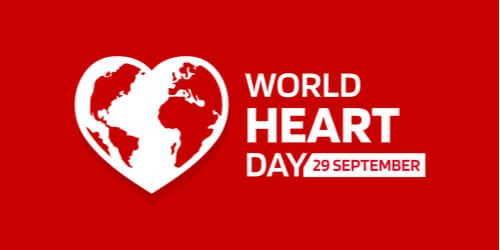
India is synonymous with festivals. The end of September is the time when festivities commence. From Navratri, to Durga Puja, to Dushhera, to Diwali leading all the way up to Christmas and New Year celebrations. These festivals have become a part of our identity and fill our hearts with joy and give us a sense of belonging. Gorging on food, spending late nights chatting with family and friends and participating in customs and traditions is the norm during these times. But while we indulge in all the fun, it is important that we take care of our health and particularly our heart. According to a survey, 35% of first heart attack victims are under 35**. So the earlier you start to protect your health, the better it is.
Below are four simple yet effective things you can do to protect your heart from an attack during festivities.
1.Get Enough Sleep
One of the simplest thing you can do to keep your heart in good shape is to get enough sleep. Yes, you read that right. It has been proven that not getting enough sleep raises the risk of heart disease. According to a study by Harvard Medical Health, most adults need at least seven hours of sleep. In fact as per the Journal of American College of Cardiology, among those aged 40-69, who slept fewer than six hours per night had a 20% higher risk of having a heart attack among those who slept six to nine hours*. It is a common sight during festivities for our sleep cycles to go for a toss. However, avoid doing so as it does more harm than good. You’re your day well and when it is time to snooze, ensure you get your 7 hours of sleep. There’s always tomorrow to indulge in some more family bonding.
2. Manage Stress Better
The festive season is a great time to manage stress better as it naturally releases happy hormones due to positive nature of festivals. However, stress can make its way into our lives in any time. Chronic stress can increase inflammation in your body, which can lead to high blood pressure and low "good" HDL cholesterol. Therefore, it is important to set aside at least 20-30 minutes every day for self-care. Talking to a professional therapist about your stress can also aid in dealing with stress in a more informed way. Mental health is as important as physical health. Yet it is something that is neglected. Mainly because it is intangible and because of the stigma attached to it. But a healthy heart is linked to a healthy mind. Get over your biases by reading up more on mental health starting here and seek help if you need to.
3. Sit Less, Move More
Moving through the day, is one of the best ways to stay healthy and prevent heart disease. It is advised that adults get a minimum of 30 minutes of activity daily. Physical activity helps you control your weight improves your metabolism and decreases your chances of developing other conditions that may put a strain on your heart, such as high blood pressure, high cholesterol and type 2 diabetes. One of the indicators of a not-so-healthy heart is belly fat. Click here to know the 3 most effective ways to shed belly fat and make your way to a healthy heart. Additionally, make use of the festivities by actively being involved in household duties. All the extra work will not only keep you fit, but also give you an added sense of satisfaction for having contributed to household work.
4.Eat Your Way To Healthy Heart
With festivities come rich foods that fill your heart up with joy but are not very good for it. While we understand that festive celebrations are impossible without eating delicious, rich food, we also encourage you to eat more of things that are good for your heart. Limit the intake of salt, sugar, processed carbohydrates, alcohol, saturated fat(found in full-fat dairy products) and trans fat(found in deep fried foods, crisps and baked items). Moderation is the key to a healthy heart.
While we take the necessary precautions to keep our heart healthy, it is wise to know the top 5 heart attack symptoms^.
Recurring pain or pressure in the center or left side of the chest that lasts for more than a few minutes.
1.Weakness or light-headedness or breaking into a cold sweat.
2.Pain or uneasiness in the jaw, neck, or back.
3.Pain or uneasiness either one arm or shoulders or both.
4.Shortness of breath –before or during chest pain or discomfort.
The festivities are all about enjoying big and small moments with those who matter to us. And, these moments are best enjoyed when you are healthy and worry-free. While taking the precautions we mentioned above is important, preparedness is equally important. If you're interested in a health protection plan that will protect you and your family against financial risks arising out of any defined unforeseen medical emergency, get in touch with our financial advisor by clicking here.
So go ahead and enjoy the festivities in a mindful way without neglecting the health of your heart.
Reference links:
** https://www.thehindu.com/sci-tech/health/survey-shows-35-of-first-heart-attack-victims-to-be-under-35/article30481790.ece
* https://www.health.harvard.edu/staying-healthy/5-ways-to-prevent-a-heart-attack
^ https://www.healthline.com/health/how-to-stop-a-heart-attack#take-action


Comments